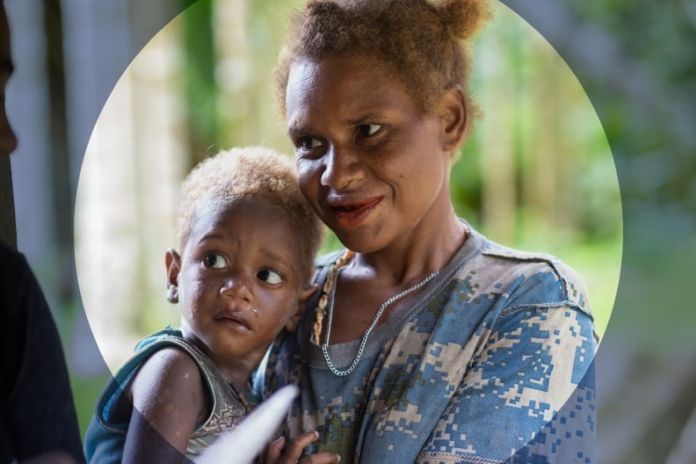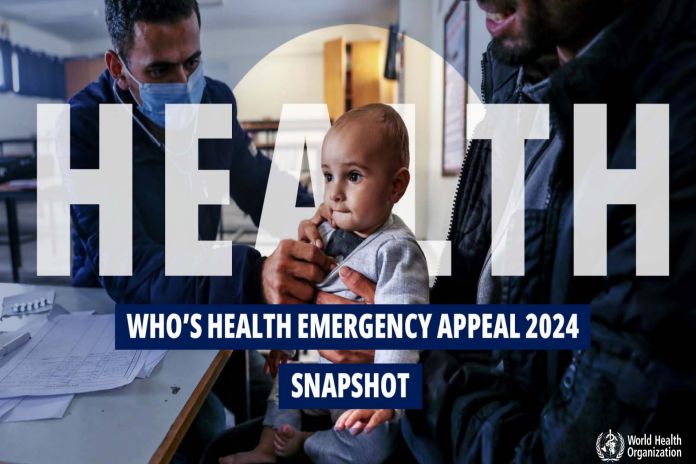By Dr Tedros Adhanom Ghebreyesus
Most of us have just returned from holidays, a time spent with family and friends, reflecting on the year that has passed and looking forward – with hope – to the new year.
While I take this opportunity to wish you all a happy New Year, we must remember that for hundreds of millions of people, 2024 is not a happy New Year.
This year, an estimated 166 million people will need lifesaving humanitarian health assistance.
For them, it is a traumatic start to a new year, and it comes on the back of 2023, which was itself a year of immense and mostly avoidable suffering.
We have all been appalled and saddened by the impacts of conflict in Sudan, Ukraine, Ethiopia, Haiti, Myanmar and of course Gaza.
Shockingly, one child in every five globally either lived in, or fled from, a conflict zone in 2023.
Meanwhile, the climate crisis is worsening. Last year was the hottest in human history, with grave implications for health.
Drought in the Horn of Africa has resulted in catastrophic hunger.
Changing climate patterns and extreme events are driving deadly disease outbreaks in all corners of the world.
The resurgence of cholera is especially concerning, with more than 40 outbreaks last year, an alarming record.
In 2023, humanitarian funding also hit its lowest point in over a decade – right when it was needed most.
Health Cluster partners received on average only 12 percent of the funding they appealed for. This is heartbreaking. And it is avoidable. It is why in 2024 we must step up.
There are only two ways to reduce the human suffering caused by health crises: increase the funding or reduce the needs. Neither is happening at the moment.
The cost of inaction is one the world cannot afford: when humanitarians cannot respond, lives are put at risk and the needs of communities increase.
A lack of access to health services feeds cycles of poverty, drives displacement, and threatens progress on all aspects of human and economic development.
Our commitment to governments, countries, and communities has always been to do everything in our power to protect the lives and health of people.
This means being present on the ground, always ready to identify needs and public health risks, using the science to conceive and rapidly deploy and scale up a response.
As 2024 starts, WHO is already responding to 41 health crises, including 15 of the highest-level ‘Grade 3’ emergencies.
Together with our Health Cluster partners, we aim to reach some 87 million people with lifesaving humanitarian assistance this year.
To do this, we need support totaling 1.5 billion US dollars. We need this funding to arrive as early as possible, and with as much flexibility as possible. That is critical to allow us and our partners to deliver on our commitments.
A reactive approach is not enough. We need to look beyond the humanitarian responses and invest more and better in strengthening capacities for preparedness and the resilience of health systems.
My sincere hope and ask for 2024 is that we do not disappoint the people we serve in the most fragile places.
I thank all humanitarian donors for their continuing commitment, and I urge everyone to step up to address the humanitarian needs we face and reduce the funding gaps that stand in our way.






